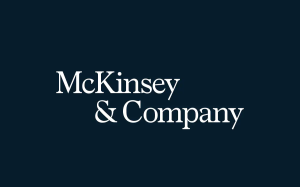With markets roiled by inflation, surging prices, and lagging consumer confidence, the uncertainty of the global business environment has been a cause for concern for many executives seeking to navigate rough financial seas. McKinsey’s latest
The survey has shown that twice as many U.S.-based consumers are pessimistic about the economy compared to the start of the pandemic in early 2020, with low-income households running out of cash savings and increasingly turning to credit as a means of meeting day-to-day expenses. Across the Atlantic, European consumer pessimism, which stood at 22% in May of 2020, now sits at 43%, reflecting a global foreboding that rough times are ahead, which is being reflected by consumers on both continents reducing or delaying discretionary purchases.
Among those surveyed, 66% indicated that inflation is a top area of concern, with an additional focus on the price increases of daily necessities like food and gasoline. Baby Boomers were the age group most focused on the economy, while Gen Z respondents — although more likely to have far less in savings than their older counterparts — were least likely to name the economy as a top concern, citing social and environmental issues. In spite of reporting high levels of concern, Baby Boomers are taking fewer cost-cutting measures relative to the younger generation, who are aggressively cutting costs to try to stay afloat.
In the face of skyrocketing costs and dropping sales, many business leaders may give in to the instinct to slash costs, reduce output, and hunker down in anticipation of worse times ahead. McKinsey, however, argues that uncertain times present a unique opportunity to deliver sustainable growth and profitability by focusing on breakout moves to emerge even stronger.
The firm recommends that companies focus on inflation-proof growth through the use of a data-driven pricing strategy to protect margins, preserve demand, and drive value; capture bottom-line savings through cost reductions to self-fund growth; leverage customer journey data to personalize engagement and increase customer acquisition, value, and retention; drive an omnichannel sales approach to scale up sales growth and reduce costs; and act boldly to seize opportunities even in the face of increasing inflation and a looming recession.
With this advice, companies looking to flourish despite the economy have a framework to safely absorb greater risks while positioning themselves to emerge from this latest downturn stronger, leaner, and readier to take advantage of resurging consumer sentiments and spending.

























